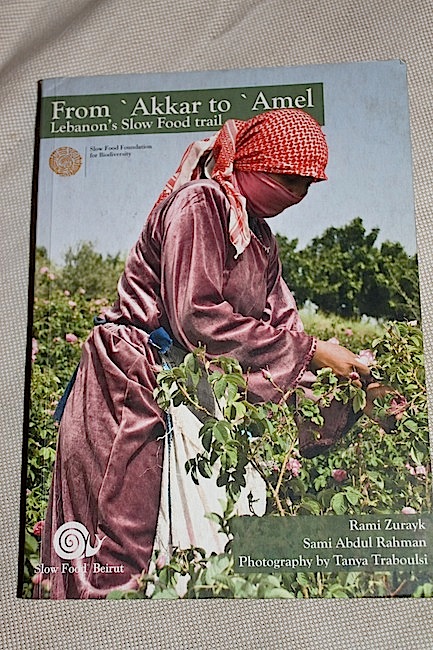Rami Zurayk (From ‘Akkar to ‘Amel)
August 3, 2014 • Category: Reviews

Rami Zurayk is an agronomist and food personality I had wanted to meet for a long time. He is the author of several food and agriculture-related books, a graduate of Oxford and professor (and Department Chair) at the Faculty of Agriculture and Food Science at the American University of Beirut, specializing in ecosystems management. He is one of the founders of SLOW FOOD in Lebanon.
A fascinating man with a wide experience of food and agriculture throughout the Middle-East (he even represented the country of Yemen) and an activist in his field; I was tempted to define him by stating that he is the Michael Pollan of Lebanon. He has published several books and hundreds of articles and conducted numerous seminars and conferences both in Lebanon and the region. A chance encounter at a social gathering allowed me to secure a meeting at his office on campus in order to hear his views on the wide and complex topic of food production in Lebanon and the entire Middle-East.
Our talk mainly centered on macroeconomic issues related to food production: The first one he expounded on was the homogenization of taste, set forth by big food consortiums. Diets have, as a result, become similar globally. Food has lost its socio-cultural dimension. (In Beirut, young people flock to sushi bars and hamburger joints!)
Rami Zurayk has also founded (among his many other pursuits), an organic store in Beirut which distributes food directly from small farmers, similar to the American CSA set-up, called The Healthy Basket (Hamra district).
One of his books From Akkar to ‘Amel, Lebanon’s Slow Food Trail, is the one I consult the most frequently. It is a concise (150 pages) , fact-filled manual on all the small producers of Lebanon. In his book, written in conjunction with one of his students, Sami Abdul Rahman and photographed by Tanya Traboulsi, he researched all of the country’s regional foods (Darfieh cheese, Labneh, Rose water, Carob Molasses, Cedar Honey, Bulgur, Zaatar, Freekeh, etc), traveling to the region where it is still produced in an artisan fashion, reporting on their producers and analyzing with scientific accuracy the method by which they are made. I consult this book first and foremost when I am researching a recipe which uses any one of these ingredients. I strongly recommend it.
Image from RedFlag Magazine.
Comments
5 Comments • Comments Feed


Rosa says:
An interesting and engaged person!
Cheers,
Rosa
On August 4, 2014 at 1:13 am
Ed Habib says:
A very interesting article. I will purchase this book for my son who is a Food Science and Sustainable Food and Farming major at UMASS Amherst. I am sure he wll find it very interesting
On August 4, 2014 at 5:12 am
Susan says:
This must have been a fascinating interview, Joumana!
On August 4, 2014 at 12:21 pm
Small business says:
I comment еach tіme I appreciate a article on a website or I have somеthing to
contribute to the diѕcussіon. Usually it is triggered by the sincerness
communicated in the postt Ӏ гead. And after this poswt Rami Zurayk
(From
On August 5, 2014 at 4:34 am